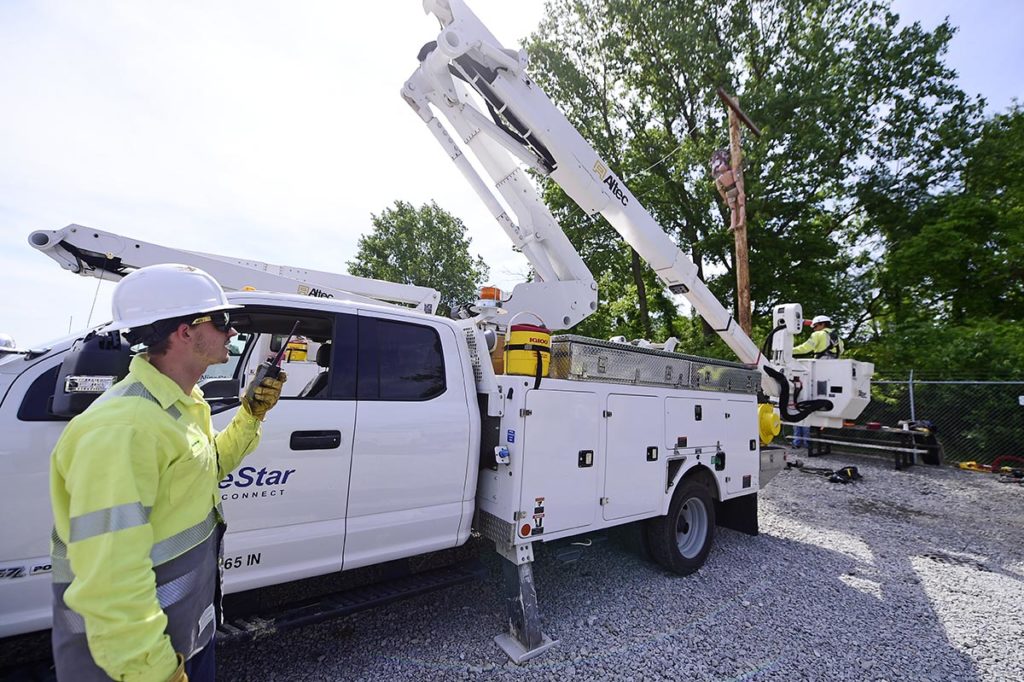
When NineStar Connect needed a new bucket truck, the electric cooperative in east-central Indiana turned to a surprising source for a loan: its consumer-members.
Instead of going to a bank or other traditional lender, the Greenfield-based co-op offered members a deal: Loan us $1,000 to $10,000 toward the purchase of a $250,000 bucket truck, and we’ll pay you back in three years with 3% interest per year.
That’s a better rate of return than members would get by investing in certificates of deposit, which yield less than 1%, said Scott Hiatt, the co-op’s chief financial officer. It’s also a good deal for the co-op, which would have had to pay about 4% interest to most banks for a loan.
Members responded in a big way, providing $274,000 in loans to the co-op. NineStar has ordered the truck and will use the extra money to outfit it with necessary equipment.
“I was a little skeptical that we’d be able to raise enough money this way,” said Hiatt, who led the project with April Fisher, the co-op’s vice president of legal and analytics. “The response has been incredible.”
Clyde Hall, a co-op member for 29 years, loaned NineStar $2,000 after talking it over with his wife, Frances, for a week.
“We just looked at it and saw that we had an opportunity to give back,” the 84-year-old said. “This is a novel way to do it. We were already co-op consumers and members; now we’re investors.”
CEO Mike Burrow said the co-op’s goal was to create a deeper connection with members.
“For us, it wasn’t about being able to raise money,” he said. “Scott could call a bank and have the money in our account in no time. This is about engaging members in a broader way. People are moving out here from Indianapolis who have no concept of what a co-op is. We want to show them that co-ops really are different.”
The co-op ended up with 33 investors, most of whom provided the maximum $10,000, Fisher said. She had to turn down investors when the co-op reached its target in just one month.
“Members who invested thought it was a smart way to keep the money in the community,” she said. “Why pay interest to a bank when we can pay it to our members?”
Burrow said the idea came from Adam Schwartz, founder of The Cooperative Way, which provides consulting services to all types of co-ops. Schwartz said food co-ops have been using member loans to finance projects for years.
“Why not apply the concept to electric co-ops?” he said. “They don’t need the money so much, but it’s a way to make members feel like they’re part of something special.”
When NineStar Connect’s new bucket truck arrives later this year, Burrow wants to put special signage on it so everyone will know it was purchased with members’ help.
“Eventually, maybe all our bucket trucks and diggers will be financed that way,” he said. “Members can point at them and say, ‘I helped buy that.’”
Erin Kelly is a staff writer for NRECA.